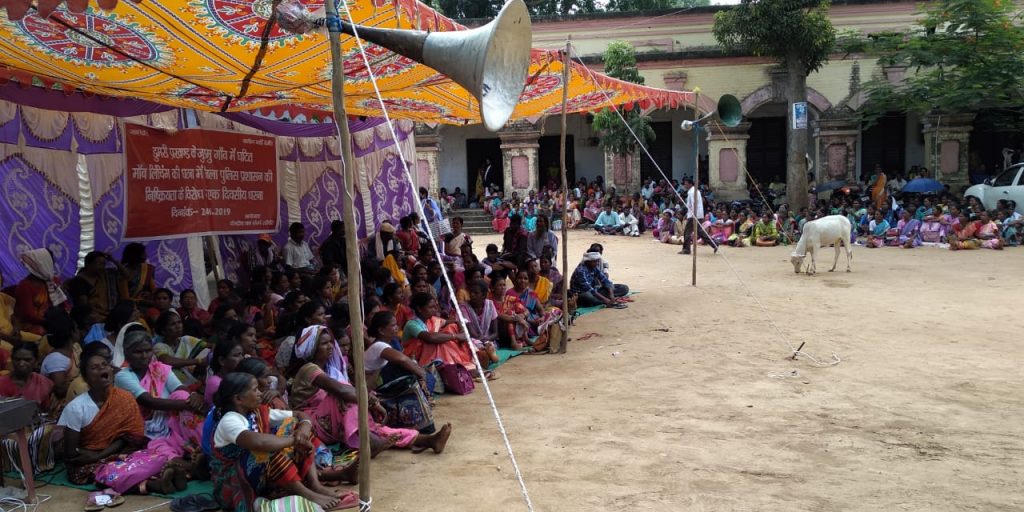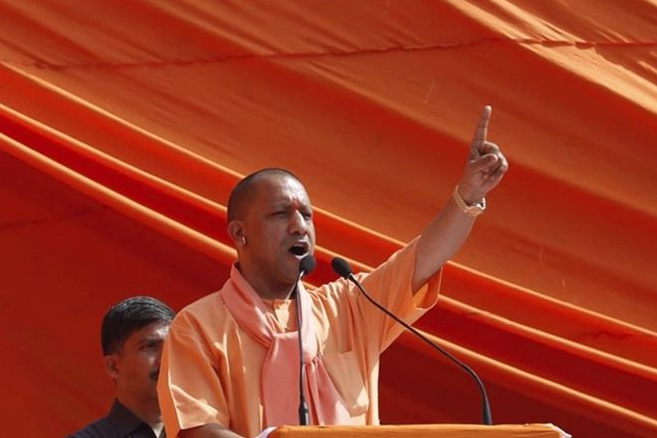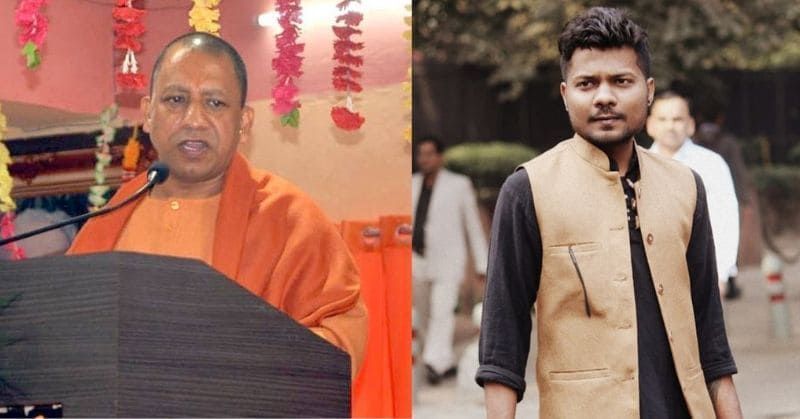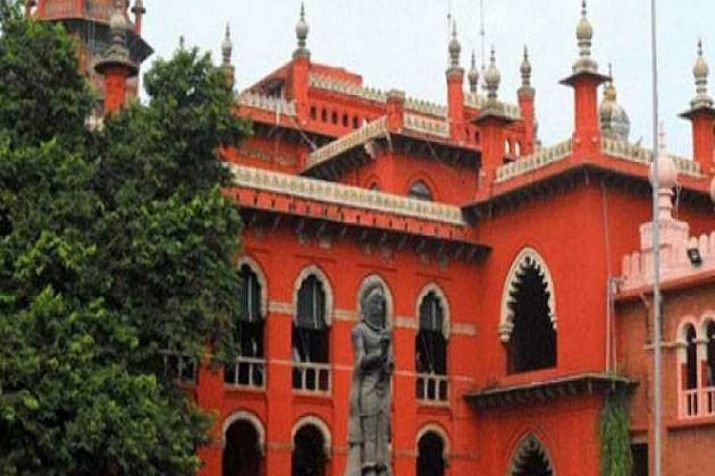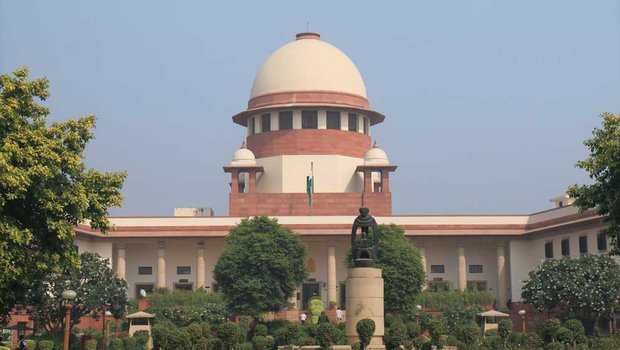
Bombay Hotel area in Ahmedabad
development and planning, two important pillars of India’s economic growth and development pathway, were given importance in the ‘New Urban Agenda’ adopted at the Habitat III conference in 2016 to help achieve Sustainable Development Goal (SDG) 11 – safe, inclusive, resilient, and sustainable cities. India’s urban development journey over the last two decades has coincided with increasing marginalisation, exclusion, conflict, and everyday violence in the cities. This violence has gone unnoticed and unanalysed in the urban planning and policy-making world.The economic reforms of 1991 increased urban inequalities, which have worsened through inequitable urban planning. As an instrument of planning, the Master Plan has also deemed many areas of the city to be illegal and, as a result, the Indian state has engineered the “elite capture” of urban spaces. It has also subverted pro-poor provisions of Master Plans.
The poor thus find spaces in the cities through “occupancy urbanism”, a gradual process of informal land occupation under political patronage, while living in fear of the constant threat of eviction. By being deemed “illegal”, the informal urban living spaces created by the poor themselves are denied the provision of basic services.
Governance is not just about what the state does in implementing plans, but also what the state does not do. A good example relates to the provision of basic services. The denial of essential urban services to the poor – because governments lack the political will, capability, or capacity to meet the needs of low-income communities – has also led to the emergence of non-state providers operating as mafias. These informal sector entrepreneurs and middlemen – often with links to government functionaries and the police – use the vulnerability and unmet needs of the poor to manipulate them.
The inability of the State to provide services, employment, and access to the corridors of power for the poor also leads to a failure to provide justice and protection. This failure introduces and sustains a system of violence, coercion, and extortion in urban areas. Such processes emanating from urban governance are not only forms of structural violence, but also cause non-state actors to threaten or use physical violence. The fact that the means of violence are no longer monopolised by the state and that non-state actors either collude or conflict with the state is interlinked to urban planning and governance processes as well.
Local design issues can also create opportunities for perpetrators of violence, conditions for tensions to escalate to violence, or an environment that invokes fear. Paved streets with streetlights and multiple activities throughout the day can create safe environments. In a culture such as India’s, where machismo is valued, everyday conflicts can escalate into violent confrontations. Geographic concentrations of low-income populations can create ghettos where criminals can find shelter.
Ahmedabad is the brand ambassador for the Gujarat Development Model of high growth accompanied by low human development, entrenched communalised polity, and social exclusion. In Ahmedabad, the focus areas and case-study locales were:
- conflicts linked to land, housing, and basic services in urban informal peripheral localities, which are also religious (Muslim) ghettos (focusing on one such locality populated by more than 25,000 families)
- conflicts linked to land, housing, and basic services in slum resettlement sites constructed using Jawaharlal Nehru National Urban Renewal Mission (JNNURM) funds (focusing on three slum resettlement sites on the urban periphery)
- women’s safety in traversing public spaces and in accessing and using public transport (focusing on two low-income localities).
Land as a driver of structural violence
In Ahmedabad’s Bombay Hotel area, located in the informal urban periphery, a decade went by with the state being completely absent and residents having no political voice in the city due to the combined effects of living in an informal development and their identity as Muslims in a city and state dominated by a right-wing Hindu political party. Informal developments have grown up on agricultural land through informal land transactions and devious behaviour by land developers without development permissions.
Bombay Hotel’s development into a large and dense Muslim neighbourhood has a violent history. Muslims displaced due to state-engineered communal riots in 2002 (Concerned Citizens Tribunal – Gujarat 2002) either purchased a plot/house in the locality or were resettled there by charity organisations. The nuclearisation of Muslim families living in the old city areas also led to the search for affordable homes to purchase, which they found in Bombay Hotel as builders floated low-instalment-based housing schemes.
All the land transactions are on sale agreements made on stamp papers, which are quasi-legal documents that record the monetary exchange but not the transfer of ownership. The legal ownership of the lands thus remains with the original farmers.
In 2013, planning came to this locality through the Town Planning Scheme, which is a land pooling and readjustment mechanism. The mechanism mandates that up to 50 per cent of the original land be vested with the planning authority for uses categorised as ‘public purposes’ such as roads, water, and sanitation infrastructure; education and health facilities; and Socially and Economically Weaker Section (SEWS) (low-income) housing known in the global literature as social housing.
The implementation of two Town Planning Schemes as an urban planning tool would have demolished about 10 per cent (2,200) of the houses in the area. Since the residents do not hold legal land rights, they do not qualify for compensation. This led to tensions, followed by mobilisation and protests.
“This lane is supposed to be demolished under [the] TP [Town Planning] Scheme. We don’t know whether we will get a house or not. We have invested all our life savings in the house and have just completed paying our instalments and now this fear lingers above us.” (Resident of Bombay Hotel Area, Ahmedabad)
In recent years, slight shifts in politics in the city and the state saw Ahmedabad’s right-wing Hindu political party attempting to woo voters from among the Muslim community. Demolishing such a large Muslim neighbourhood would have attracted bad press and therefore the demolitions under the Town Planning Scheme were put on hold.
Further, the boundaries of electoral constituencies were changed during the 2010–2012 period, bringing a change in local elected representatives. Centrist party (Indian National Congress) candidates won the Ahmedabad Municipal Corporation and state assembly elections for this locality, leading to pressure from local leaders and residents on the elected representatives to halt demolitions and extend basic services to the locality. The residents were successful on both counts. Significantly, the conflict over eviction was mitigated when the elected representatives intervened, causing the local government to modify the implementation of its Town Planning Scheme to address people’s concerns.
However, the process is incomplete, and conflict over eviction could arise again as the Town Planning Scheme implementation progresses. In the meantime, municipal services, such as drainage and water supply, are being extended to the locality. This has the potential to alleviate some of the conflicts and violence emerging from the informal provision of services as well as structural violence resulting from deprivation.
Housing as a driver of structural violence
The lack of an affordable housing policy and related schemes led to the development of informal housing. Low-income households prefer to live in locations where they can easily access a livelihood and do not have to incur commuting costs. If the formal housing is expensive in such locations, they tend to live in informal housing. In Ahmedabad, for example, informal housing emerged on lands in central areas of the city close to opportunities for work, such as on the banks of the Sabarmati River that divides Ahmedabad.
The riverfront development project displaced between 12,000 and 15,000 households of which approximately 11,000 were resettled at various JNNURM housing sites. Many were resettled at the Vatwa resettlement sites on the urban periphery, along with evictees from other infrastructure projects. The Vatwa sites comprise 9,200 dwelling units across seven sites that were selected due to their low land prices. We selected three of these sites, Sadbhavnanagar, Kusha Bhau Thakre (KBT) nagar,5 and Vasant Gajendra Gadkar (VGG) Nagar for our research.
Here, we found that urban planning has been used as a tool to displace low-income households from core areas of the city to the underdeveloped periphery, rather than bringing them into the urban mainstream and providing them with a wider set of opportunities. This is a typical case of reproducing and, in many cases, deepening inequalities through the urban planning process and further entrenching structural violence. The constrained mobility and stressed livelihoods faced as a result of relocation have deepened the structural violence in the lives of the majority of residents.
The resettled residents, uprooted from their former homes from which they could walk or cycle to work, are now forced to use motorised transport and pay for their travel to work. Specifically, women’s livelihoods were extremely constrained due to the fear of harassment and violence in commuting longer distances. Many dropped out of the labour market or began to work from their homes. At home, they produce goods on a piece-rate basis, resulting in a decline in their income.
All of these factors together have increased housing and transport costs for the residents and have pushed them below the poverty line. Residents reported spending between one-third and one-quarter of their income on commuting, while also indicating increased housing costs. This deepening of structural violence, through induced poverty, has led to thefts of private and common property.
Robberies and burglaries became widespread at the Vatwa resettlement sites. Petrol from bikes; the tyres of rickshaws, motorbikes, and even bicycles; lids of overhead water tanks; tubing covering electric wires; and water pipes have all been stolen.
Many residents have been robbed, sometimes at knife-point, while moving in and around the sites. Residential burglaries have taken place where cash, jewellery, mobile phones, and other items have been stolen. Residents try not to leave their houses unoccupied for long. Residents described how they felt insecure; women, in particular, did not step out of their homes after dark, which was not the case where they used to live. Communities that used to be close knit have been dispersed across different sites and randomly situated within those sites due to the house allotment process.

A resettlement colony in Ahmedabad
This haphazard approach to resettlement has led to social disruption and resulted in the loss of moral authority that local leaders, elders, and residents in general were able to exercise previously. Overall, internal informal social control is now lacking at the resettlement sites, creating a “mahol” or environment in which crime is committed with impunity and youth, in particular, easily stray towards theft, gambling, and illicit activities such as selling/consuming drugs. This latter situation is exacerbated by the absence of feasible livelihood options.
“When there are no jobs, the youngsters get spoilt. They get into wrong activities [sic]. They do not have money for the transport fare … when a person goes hungry then he will steal; he will get into bad businesses.” (Female resident at the Vatwa resettlement site)
“If [a child’s] mother is not at home the whole day and they are hungry then they might steal. If I leave my shop unattended just now and if a child who has not eaten since morning comes by, he might pick up something.… Today he might pick up something costing INR5; tomorrow he will steal something more.” (Female resident at the Vatwa resettlement site)
The built environment at the resettlement sites has also enhanced crime. Some stretches of the main road have few activities. The lack of ‘eyes on the street’ has created opportunities for robberies and the harassment of women. Within the sites, large sections do not have functioning streetlights and, where they are present, those who engage in crime break the lights whenever they are repaired. The common passageways in most buildings do not have functioning lights due to disputes about electricity bill payments.
Overall, the physical environment is intimidating, especially for women. Thus, we see structural violence leading to increased crime. Emanating from it is everyday fear of crime and violence among the residents. Lack of proper policing, due to the overall failure of local security governance at the site, has deepened these fears among residents, which have a strong gender dimension.
Water supply systems as a driver of structural violence
Conflicts related to water are primarily due to the lack of a formal water supply in informal settlements. This is an urban planning issue. However, conflicts have emerged: in Bombay Hotel, these are due to the supply by informal water providers; in the Vatwa resettlement sites, they are due to the local government’s approach to the design and governance of water infrastructure.
In Bombay Hotel, the absence of a municipal water supply has led to the emergence of many different kinds of informal water supply arrangements, such as builders or better-off residents providing water from private bore-wells and residents fetching water from surrounding factories. Some of these arrangements mitigate extreme deprivation and conflicts around water, but many lead to a variety of conflicts:
- among residents of a neighbourhood
- between residents of different neighbourhoods
- between residents and water suppliers
- between residents and the local government.
The conflicts often involve verbal and low-intensity physical fights on a daily basis. The informal water suppliers are motivated purely by profit; their approach to supplying water reflects this, with fixed territories of supply to protect profits and coercive practices. They collect monthly charges whether or not they are able to supply adequate water. Residents are unable to oppose this due to a lack of alternative sources and the high-handedness and threats from the suppliers.
In fact, residents cannot even complain about these operators without raising their ire. Multiple types of everyday conflicts emerge from the coercive management of water supply systems by these non-state actors. All conflicts have the potential to result in violence between residents and the water suppliers as well as among the residents themselves.
“In one of the societies [a community], a local leader complained to a politician about the poor quality of water being supplied by the bore-well operator. This angered the operator who then stopped supplying water to the residents which in turn led to an argument between the residents and [the] local leader as the former felt that the latter should not have complained to the politician as this had totally cut off their access to water.” (Resident of the Bombay Hotel area)
Municipal officials have been aware of unregulated groundwater extraction, its sale in the area, and the consumption of this contaminated water by residents. These facts point to the local government’s complicity in the situation. In recent years, the local government has started to send water tankers into the locality. However, this method of supply is wholly inadequate, leading to violence at the tankers, frequently among women who usually bear the family responsibility for water collection:
“Sometimes, these fights are bad. A few days ago, two women physically attacked each other and pulled each other’s hair. We had to call the police. One woman was sent to the hospital and the police arrested the other woman. Women fight with each other because only one tanker comes here for so many people and we cannot be certain that each of us will get water.” (Woman from Bombay Hotel)
In a couple of rare instances, residents have managed to collectively dig bore-wells to make arrangements for water, freeing them from the water suppliers and associated conflicts. This collective effort is an important bottom-up practice, but it still does not ensure good quality water and does not totally address the issue of deprivation and structural violence. At the Vatwa resettlement sites, water provision was arranged without sufficiently resolving outstanding governance questions. This led to a lack of potable water and inadequate running water due to leaking and blocked water pipes.
The structural violence created by resettlement on the urban periphery through socially disruptive processes has made the possibility of residents managing, maintaining, and sustaining the water supply extremely rare, thereby perpetuating structural violence. Municipal officials sometimes intervene, either out of benevolence or due to political pressure, but this generally results in uneven and inadequate interventions, furthering micro-local inequalities.
Some officials are also unsympathetic towards residents because they consider resettlement to be an act of charity. As a consequence of insulting them in this way, residents have retaliated by vandalising public property at the municipal office, exhibiting counter-violence against the state. Here, despite residents’ protests, the local government has remained unresponsive and has withdrawn the low level support that it was providing to keep the water supply system working.
Residents have almost completely stopped making demands on the government in the face of its increasingly uncompromising stance. But with access to water not resolved, the point of conflict has shifted to conflicts among the marginalised: among residents and between residents and water operators over maintenance and repairs. Furthermore, inequities are also reproduced as women and children regularly bear the brunt of gathering adequate amounts of water for the household.
Public transport as a driver of women’s insecurity
Ahmedabad has good public transport coverage through buses operated by Ahmedabad Municipal Transport Services (AMTS) and the Bus Rapid Transit System (BRTS). However, there are issues related to frequency, connectivity, and affordability of public transport in Bombay Hotel and the Vatwa resettlement sites. Women were forced to commute using para-transit vehicles such as ‘shuttles’ (three-wheeled auto-rickshaws that operate on a shared basis). Many women perceived the shuttles to be unsafe when sharing them with male passengers or when they had to take them alone because they feared the male driver.
“She used to go from here to the BRTS road in a shuttle and then from there to Dani Limda in another shuttle and then walk from there to school. The driver would keep a watch on her and would not take any other passenger when she was in his rickshaw; he would tease her and take her through different routes every day. Out of fear, she stopped going to school.” (Resident of Bombay Hotel regarding her niece’s experience)
In Bombay Hotel and Vatwa, walking to public transport stops was also challenging for women. They often face insecurity and harassment in public spaces. There are multiple drivers of this insecurity, many of which stem from the built environment: poor lighting; uneven roads and the absence of footpaths; and vacant spaces and structures along access roads that can be used by goons for illicit activities such as manufacturing, selling, and/or using alcohol and drugs or gambling.
Multiple causes, including a lack of good employment opportunities, draw many male youths into illicit activities, which then lead them to harass girls and young women. As such, women in Bombay Hotel and Vatwa will only undertake a trip if it is a necessity.
—
*Visiting professor at the School of Arts and Sciences, Ahmedabad University, Ahmedabad; **independent scholar based in Ahmedabad, formerly senior research fellow at the Centre for Urban Equity, CEPT University
These are excerpts from the paper “Everyday violence in urban India Is planning the driver or mitigator?” published with the permission of Prof Darshini Mahadevia
Courtesy: Counter View

